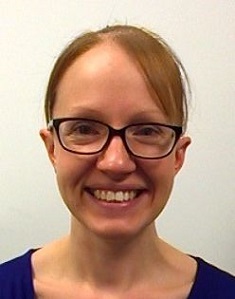Dr Gemma Currie

Following completion of my PhD in 2016, I secured a SCREDS lectureship position in Diabetes and Endocrinology within Glasgow University’s Institute of Cardiovascular and Medical Sciences .
As a relative latecomer to research, having gone out of programme to undertake my PhD research towards the end of my specialist training, I had only 2 years of clinical training remaining when taking up the position.
Compared to similar schemes elsewhere in the country, the academic time allocation within the SCREDS system is quite small. 80% of time is spent working clinically and 20% protected for academic work.
It's certainly challenging to build a research portfolio that is competitive at a national level with this small proportion of academic time, but in retrospect I was able to use this time productively to further develop research skills and produce a body of work to support intermediate fellowship applications.
My PhD work focussed on a clinical trial which continued after I took up the SCREDS post. I therefore used some of my academic time allocation to continue overseeing the running of the project.
I was fortunate to have excellent mentorship throughout and every effort was taken to ensure that I developed additional research interests, refined the skills I had gained during my PhD and worked collaboratively with colleagues both within the institute and further afield, in order to lay the foundation for a more independent academic career in the future.
Another benefit of the SCREDS scheme is the opportunity to have more input into the direction of your clinical training than other non-academic colleagues.
A SCREDS post generally necessitates that you are placed within teaching hospitals rather than in peripheral units, which allowed me to capitalise on using any unexpected free time to continue with work in the Clinical Research Centre.
Training allocations were discussed with me prior to any decisions about placement being taken, and felt my training and academic needs were taken into account during this process.
I also became involved with the Clinical Academic Training Advisory Committee in order to represent the interests of clinical lecturers in discussions between NHS, deanery and university representatives.
Of course there are a number of challenges also associated with these positions. Time management is of critical importance.
I found that my protected academic time was not universally acknowledged by clinical colleagues or rota-coordinators; it is essential to defend this as much as possible and make colleagues aware of your needs.
Similarly 20% equates to one day per week – it is important to remain focused and plan how you will use this time in advance; it can sometimes feel like both the NHS and University want 100% of your time!
In addition, a SCREDS post may require that your CCT is delayed. I did not necessarily feel that this was a particular drawback as it gave me time to build a CV that would be competitive for either clinical or academic positions in the future.
Overall I would definitely encourage trainees to strongly consider such positions in the future.
My SCREDS post generated a number of first author papers; helped me to build collaborative projects locally and with colleagues around Europe; provided me with additional leadership, management and critical thinking skills; and eventually led me to secure my first consultant position within an academic unit in a large teaching hospital.
Dr Gemma Currie - Consultant Physician (Diabetes and Endocrinology) and SCREDS Clinical Lectureship participant

